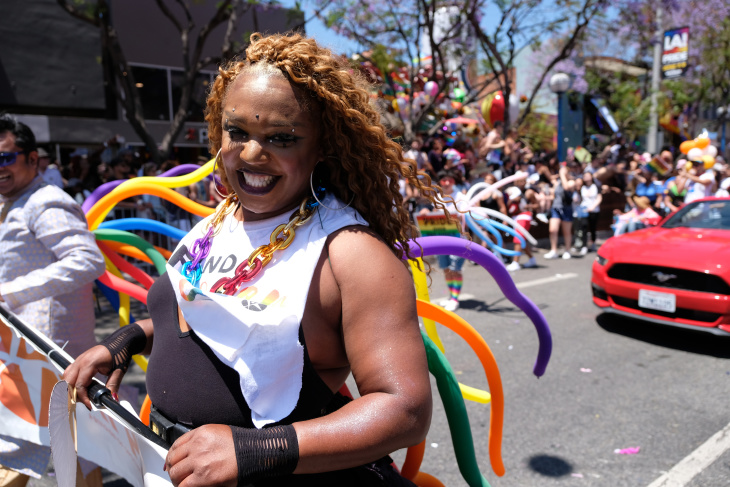
This Sunday, the All Black Lives Matter march will be held in West Hollywood. The event has a dual purpose: to honor the lives of Black queer people who have been killed by the police; and to drum up support for Black Lives Matter's demands to defund the police and prosecute more officers.
But the road to making the march happen had its own tensions.
The organization, Christopher Street West, produces the annual L.A. Pride festival. On June 3 it was announced that L.A. Pride, which had been postponed due to COVID-19, would become a march in solidarity with the Black community. The organization got plenty of kudos for its supposedly progressive stance, but it soon became clear that organizers had failed to do something crucial — consult any Black leaders outside of Christopher Street West about the event.
Ashlee Marie Preston, a Black trans multimedia star who served on the L.A. Pride Board in 2017, says she found out about the march when friends started calling and texting her for details.
"Black leadership knows exactly what it needs in order to thrive so please don't conflate saviorism with solidarity," Preston said in a Twitter video. She was also troubled that L.A. Pride had used the name "Black Lives Matter" without getting consent from the organization.
Protests aren't solely about bringing in bodies. They're about bringing a message. If there's no clear message, there's no clear path toward victory. Always make sure you can identify the messenger. This mitigates the possibility of infiltration and derailment of a movement. #BLM pic.twitter.com/RHgrawd0Rc
— Ashlee Marie Preston (@AshleeMPreston) June 4, 2020
As more people spoke out about the lack of involvement of Black queer voices in the city, the criticism grew, especially after Fran Tirado, one of the hosts of the queer podcast Food 4 Thot, shared a screenshot of the event permit application, which praised L.A. Pride's "strong and unified partnership with law enforcement."
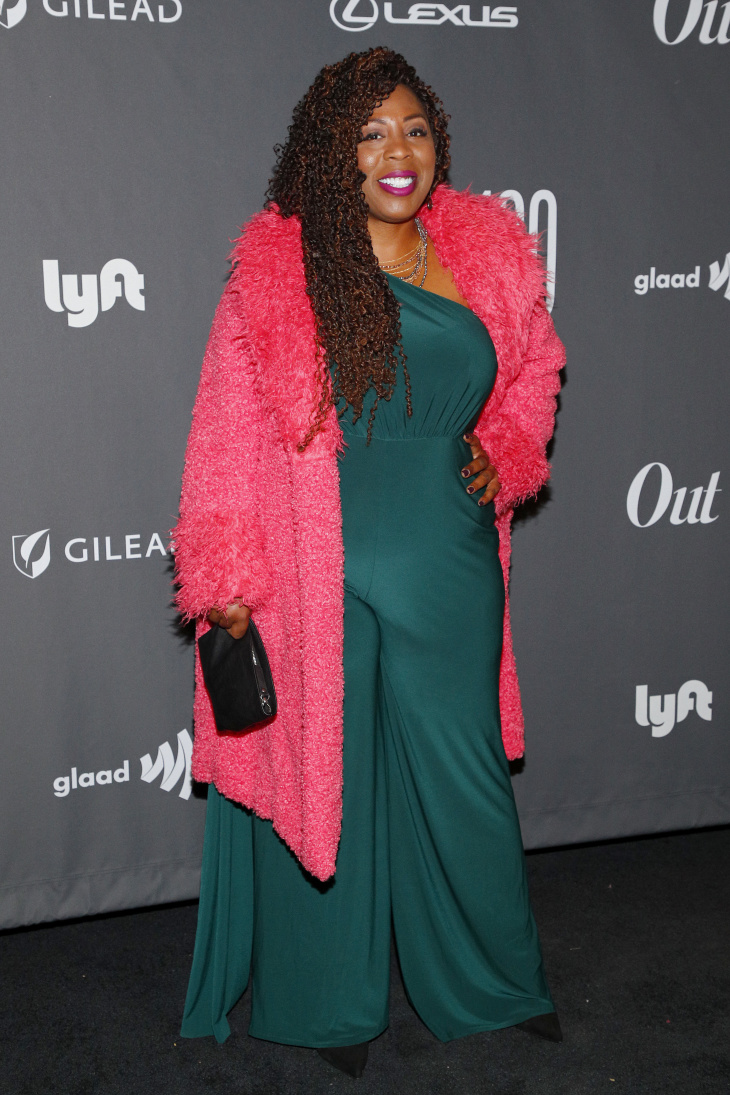
"When cops are putting knees on people's necks, they chose to court the police," Preston tells LAist.
To activist and journalist Jasmyne Cannick, the episode was infuriating but unsurprising, the perfect illustration of how White LGBT leaders have long ignored Black voices, even as they pat themselves on the back for their inclusivity.
From the removal of the hip-hop stage at last year's L.A. Pride to discrimination against Black patrons in clubs and bars to the disheartening statistic that Black people make up 27.9% of West Hollywood's homeless population to wealthy White men, like Ed Buck, who have been accused of preying on Black men, Cannick believes anti-Blackness pulses through L.A.'s queer community.
"The bottom line is that Christopher Street West and L.A. Gay Pride have a lot to apologize for," Cannick says. "They have a lot to atone for when it comes to decades of mistreatment towards the Black LGBTQ community and they're not going to get a pass on that."
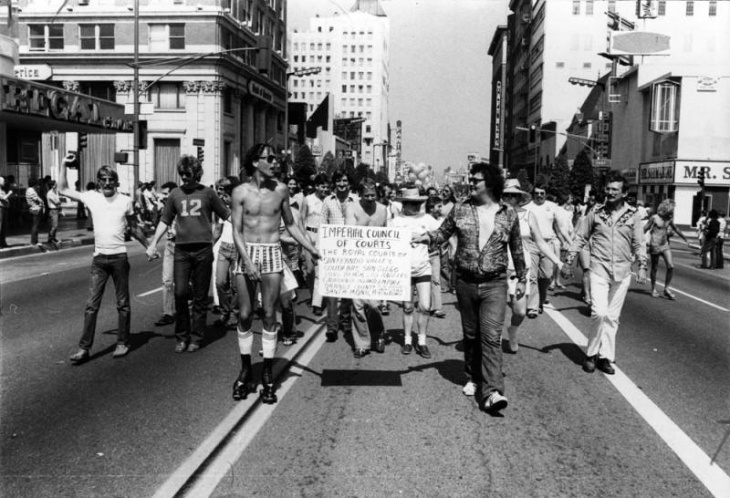
RADICAL ROOTS
When Los Angeles held its first Pride parade, on June 28, 1970, organizers wanted to commemorate the one-year anniversary of the anti-police riots at New York City's Stonewall Inn.
Approximately 1,000 people turned out to march along Hollywood Boulevard. There weren't any spangled floats sponsored by multinational liquor brands or beefcake dancers twirling under rainbow balloon arches.
Instead, members of various queer organizations such as the Gay Liberation Front and United States Mission marched alongside a float sponsored by gay magazine the Advocate. It was steered by a mix of swimsuit-clad men and members of more conservative gay groups, who wore business attire.
Organizers fought to obtain a permit for the march and were initially charged more than $1.5 million for it. (The ACLU sued the LAPD and a court ruling eventually reduced the amount to $1,500.) In the end, participants walked the mile-and-a-half from Highland to Vine and back again with the protection of the police.
By 1979, the parade had moved to West Hollywood, which had a growing gay — mostly White — population.
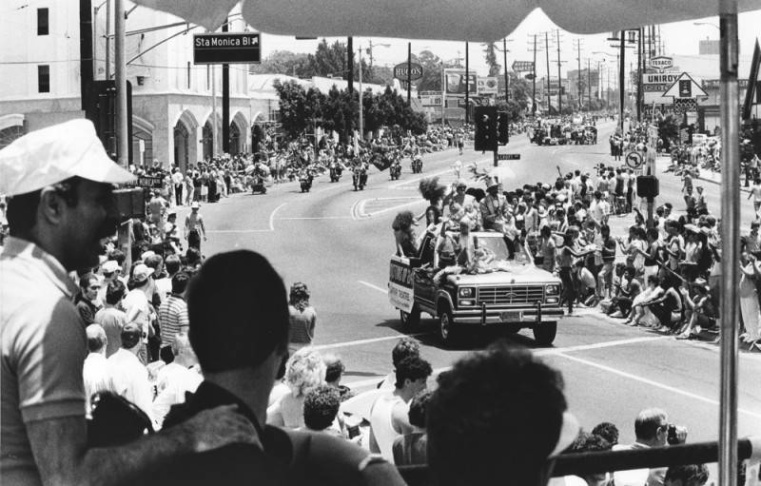
During the 1980s and early '90s, as more than 430,000 people died of HIV/AIDS, activists staged "die-ins" at Pride, splayed themselves in the streets and demanded the government allocate more resources to fight the epidemic.
But by the mid-2000s, Pride had shed most of its radical, anti-police roots to become the "gay Coachella" — a transformation that not everyone was happy about.
Last year, L.A. Pride drew approximately 250,000 revelers. As at most such festivals around the country, law enforcement officers were a high-profile presence.
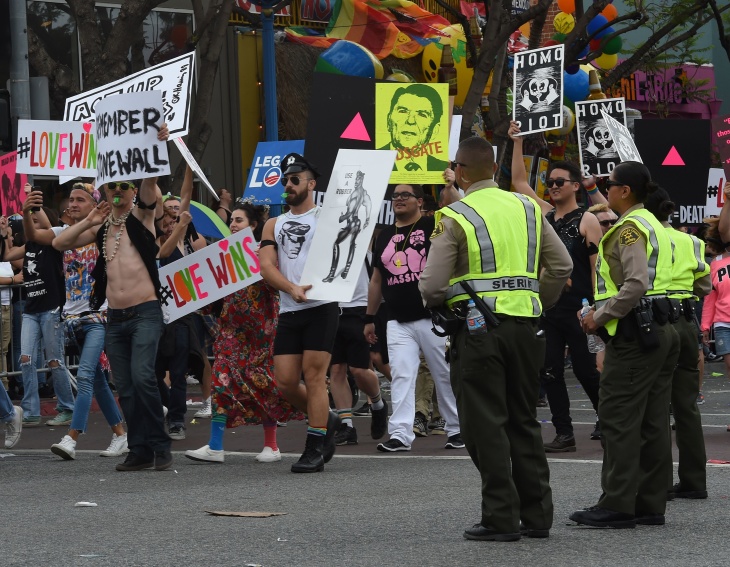
Debate has raged within L.A.'s queer communities about how Pride, once a free event to celebrate a civil rights uprising, has become geographically and financially inaccessible to many Angelenos.
In 2019, a one-day ticket to the festival cost $30, which organizers of the #NotOurPride campaign said was a barrier for many LGBTQ people. Critics also complain that the extravaganza doesn't represent people of color, specifically queer and trans Black people, which is especially galling since activists such as Marsha P. Johnson, Sylvia Rivera and Miss Major Griffin-Gracy played a crucial role in the Stonewall Riots.
So when Christopher Street West announced its "Black solidarity march," it was, for many Black queer people, like pouring salt in a long-festering wound.
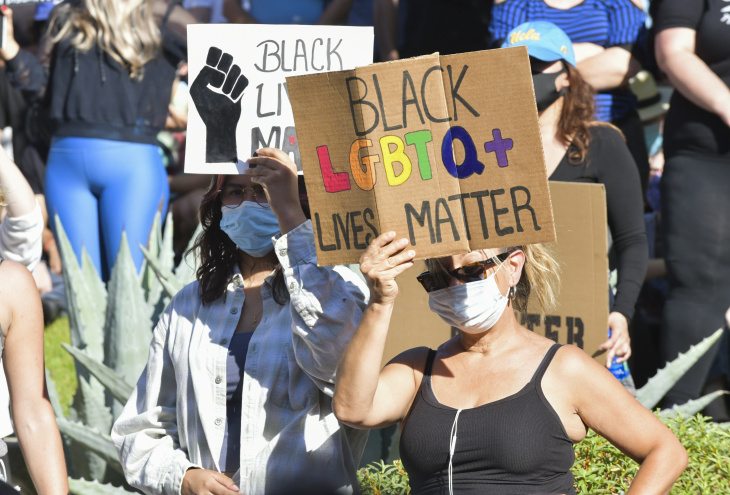
As the criticism mounted, Christopher Street West organized a sit-down with 39 queer Black leaders. From that meeting, an advisory board of Black LGBTQ+ leaders came together and convinced the nonprofit to back away from the event. Then, they refocused and renamed the event.
On Sunday, June 14, the All Black Lives Matter march will honor the life of Tony McDade, a Black trans man killed by a Tallahassee officer on May 27. At 11 a.m., the march, which takes place at Hollywood and Highland, will start with two trans speakers. They'll be followed by a moment of quiet meditation for Black people who have been killed by police or other forms of institutional violence.
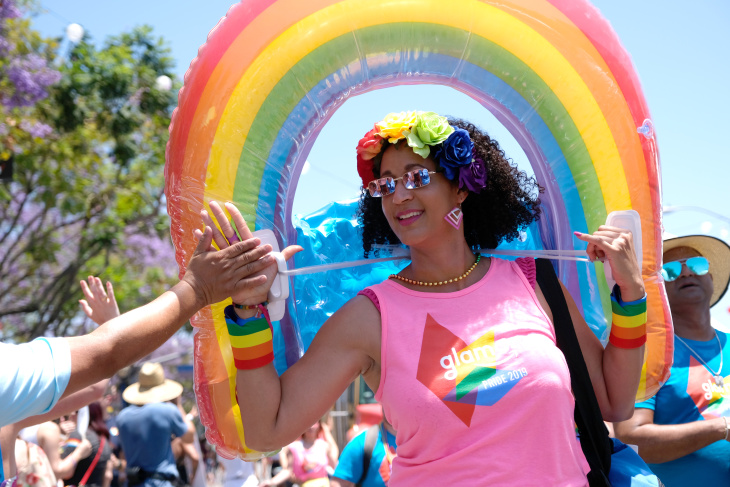
The event's 10-person advisory board includes Princess Murray, who, in 2019, founded Compton's first Pride festival; Gerald Garth, one of L..A Pride's only Black board members; Sammie Haynes, pastor of Vision Church of LA; and chairman Brandon Anthony, founder of Black LGBT nightlife company B.A.S.H.
"We want everyone to be involved, to create a solid board that represents every part of L.A., every gender, every level in terms of politics, nonprofit, entertainment and nightlife. We want to make sure to reach the masses," Anthony says.
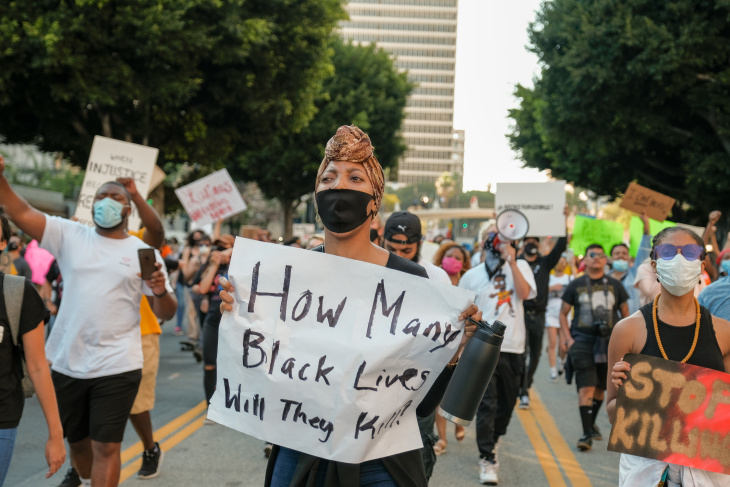
Los Angeles isn't the only city that has refocused its annual Pride shindig. Sweeping nationwide protests against police brutality, prompted by the killing of George Floyd, have inspired — some might say forced — Pride festivals to rethink their approach.
In New York City, Reclaim Pride organized a Queer Liberation March to mourn Black lives and fight police brutality. Cities from South Orange, New Jersey to Austin, Texas have thrown together marches in support of Black Lives Matter. In Boston, Porch Pride organized a socially distant way for people to celebrate Pride while raising money to benefit the Black Trans Advocacy Coalition and Homeless Black Trans Women Fund.
It's a start, but there's more work to be done.
On June 10, Cannick convened a remote panel discussion about anti-Blackness at L.A. Pride and in the larger West Hollywood community. It featured seven Black queer trailblazers including Jewel Thais-Williams, founder of Jewel's Catch One, and ended with a call for more education focusing on queer Black history.
It also included a demand that L.A. Pride apologize to queer Black leaders for devaluing their voices at past and current events. Former L.A. Pride board member Marquita Thomas cited an experience where the president of Christopher Street West had her and another Black participant removed from Pride one year. When she complained to the board, she was told it was a personal issue that had nothing to do with the overpolicing of Black people.
"For 50 years they have been turning their back on the Black community. They need to sit down with the community and have a face to face meeting. They need to hear the criticism the community has for them," Cannick told LAist.
Everyone involved with All Black Lives Matter wants the momentum from the march to extend beyond a single day.
"We're going to take the initiative to challenge West Hollywood and examine misrepresentations of our community, not just with L.A. Pride but beyond," Anthony told LAist.
Preston believes the moment is ripe to refocus Pride and honor the work of Black trans pioneers. She wants Christopher Street West and similar groups to be held accountable for their mistakes, but she also wants more than that. Preston thinks its crucial that queer organizations and companies involve Black people from the get-go and trust their leadership.
"There's always been an opportunity to unpack intersectionality in the LGBT community," Preston says. "When it comes to 'Pride Inc.,' it tends to focus on experience and entertainment value but there's an opportunity here to go back to what Pride is really about — a protest."
MORE COVERAGE
"all" - Google News
June 13, 2020 at 02:00AM
https://ift.tt/2XUt4hz
How All Black Lives Matter Emerged From The Ashes Of A Failed 'Solidarity March' - LAist
"all" - Google News
https://ift.tt/2vcMBhz
Bagikan Berita Ini















0 Response to "How All Black Lives Matter Emerged From The Ashes Of A Failed 'Solidarity March' - LAist"
Post a Comment